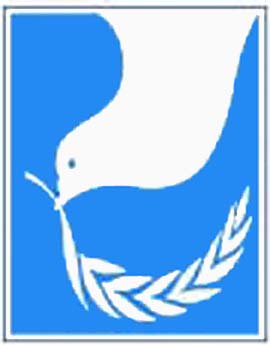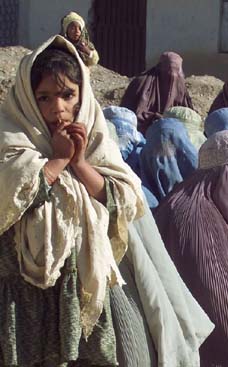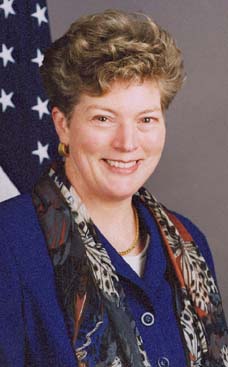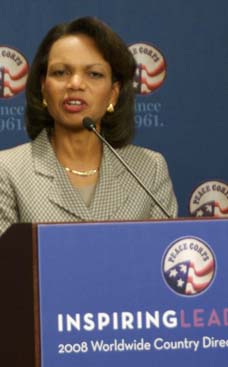
His work leading up to Head Start was inspired by the U.S. Supreme Court's 1954 ruling that desegregated public schools, Brown v. Board of Education. Dr. Richmond and a colleague at what is now the State University of New York Upstate Medical University set out to document how poverty threatened the psychosocial development of young children. ad_icon According to a 1981 oral history, Dr. Richmond said he and SUNY colleague Bettye Caldwell noticed that all children seemed to develop at the same pace in their first year of life, but poor children's advancement lagged as they started using language and exploring their surroundings. With early intervention in a stimulating environment, Dr. Richmond and Caldwell found the decline could be prevented. Dr. Richmond's work caught the eye of Sargent Shriver, who was appointed to lead the new Office of Economic Opportunity in 1964. Recruited to the OEO, Dr. Richmond used demonstration grants to launch Head Start in 1965 and enrolled 500,000 children in 2,700 communities within six months.
Obituary for Julius Richmond, first director of Head Start
Former Surgeon General Julius Richmond
By Patricia Sullivan
Washington Post Staff Writer
Wednesday, July 30, 2008; Page B06
Julius B. Richmond, 91, the first director of Head Start and a former U.S. surgeon general who spent four decades campaigning against cigarette smoking, died July 27 at his home in Brookline, Mass. He had cancer.
Dr. Richmond, a pediatrician and child development specialist, was in 1965 one of the original founders and the first director of Head Start, the federal effort to improve education and health of poor and at-risk children. He also organized and ran a program that opened federally funded neighborhood health-care centers during the 1960s.
Appointed surgeon general and assistant secretary of health in the old Department of Health, Education and Welfare in 1977, Dr. Richmond promoted anti-smoking, preventive health-care and public health policy campaigns.
"There may be more famous surgeons general, but there was none more dedicated, tenacious or courageous," said Joseph A. Califano Jr., former HEW secretary, from a vacation in Italy. "He was with me all the way on the [anti-]smoking campaign. . . . He wasn't sensitive about what people would think of him. And he cared about public health."
His work leading up to Head Start was inspired by the U.S. Supreme Court's 1954 ruling that desegregated public schools, Brown v. Board of Education. Dr. Richmond and a colleague at what is now the State University of New York Upstate Medical University set out to document how poverty threatened the psychosocial development of young children.
ad_icon
According to a 1981 oral history, Dr. Richmond said he and SUNY colleague Bettye Caldwell noticed that all children seemed to develop at the same pace in their first year of life, but poor children's advancement lagged as they started using language and exploring their surroundings.
With early intervention in a stimulating environment, Dr. Richmond and Caldwell found the decline could be prevented.
Dr. Richmond's work caught the eye of Sargent Shriver, who was appointed to lead the new Office of Economic Opportunity in 1964. Recruited to the OEO, Dr. Richmond used demonstration grants to launch Head Start in 1965 and enrolled 500,000 children in 2,700 communities within six months.
The work was not without its moments of danger in those racially segregated times.
Visiting the Child Development Group of Mississippi, a program under attack because it predominantly served black children, in the late summer of 1965, Dr. Richmond noted that his entourage was followed from town to town by "rednecks," and volunteers had to stand as armed guards at night for their buildings.
"It was really a tense situation," he said, according to author Kay Mills's history of Head Start, "Something Better for My Children" (1998). "One of the most beautiful programs we saw had been operating out of a wonderful little black church [in Valewood, Miss.,] and it was burned down the day after we visited the place."
In 1967, Dr. Richmond returned to SUNY to become dean of its medical faculty in Syracuse. In 1971, he moved to Harvard Medical School, where he held professorships in child psychiatry and human development, and in preventive and social medicine.
Califano summoned him back to Washington in 1977 to be HEW's assistant secretary for health and surgeon general, the chief spokesman on the nation's health. It was the first time the jobs were combined.
Dr. Richmond aimed to improve the delivery of health services, especially to the elderly and poor. He also said at the time that Califano had given him the responsibility for one of President Jimmy Carter's goals: comprehensive national health insurance covering every American, from cradle to grave.
In his four years in that job, he issued the first surgeon general's report on health promotion and disease prevention, urging Americans to cut their consumption of alcohol, salt, sugar and fats, get moderate exercise, obey speeding laws, use seat belts and see a doctor regularly.
He also worked on a national strategy to combat infant mortality. Under his oversight, the federal government carried out a successful immunization campaign for measles and other childhood diseases that disproportionately affected the poor.
Califano said Dr. Richmond advised him to change a public health regulation that declared homosexuality an illness, a rule that barred gays from entering the United States. Califano quietly took his advice.
In 1979, Dr. Richmond issued a 1,200-page update to a landmark 1964 surgeon general's report on smoking. The follow-up study greatly expanded public knowledge of the evidence that smoking caused lung cancer, heart disease, emphysema and other illnesses.
ad_icon
This was a campaign he continued to wage throughout his life. After he left office, he served as an expert witness in lawsuits against tobacco companies, and he joined three other surgeons general in 2004 to unveil a national plan to curb smoking, calling for a $2 tax on every pack of cigarettes.
Julius Benjamin Richmond was born Sept. 25, 1916, in Chicago and graduated from the University of Illinois. He received a master's degree in physiology and a medical degree there as well, in 1939.
After two years at Cook County Hospital in Chicago, he served in the U.S. Army Air Forces as a flight surgeon during World War II.
He then joined the University of Illinois' College of Medicine in Chicago, where he was active both in nonprofit children's welfare organizations and Chicago's Institute for Psychoanalysis, until he moved to SUNY in 1953.
After his career in government ended in 1981, he returned to Harvard, where he was a professor of health policy until retiring in 1988.
Harvard launched its Center on the Developing Child in his honor, and the American Academy of Pediatrics named its Center of Excellence and a lectureship for him. He wrote "The Health Care Mess: How We Got Into It and What It Will Take to Get Out," (2005) with Rashi Fein. His many awards included the Heinz Award in Public Policy in 2003.
His first wife, Rhee Richmond, died in 1985. A son from that marriage, Dale Richmond, died in 1972.
Survivors include his wife of 21 years, Jean Richmond of Brookline; two sons from his first marriage, Dr. Barry Richmond of Bethesda and Charles Richmond of Indianapolis; two stepsons, Michael Berger of Detroit and Dr. Steven Berger of West Lafayette, Ind.; nine grandchildren; and five great-grandchildren.










